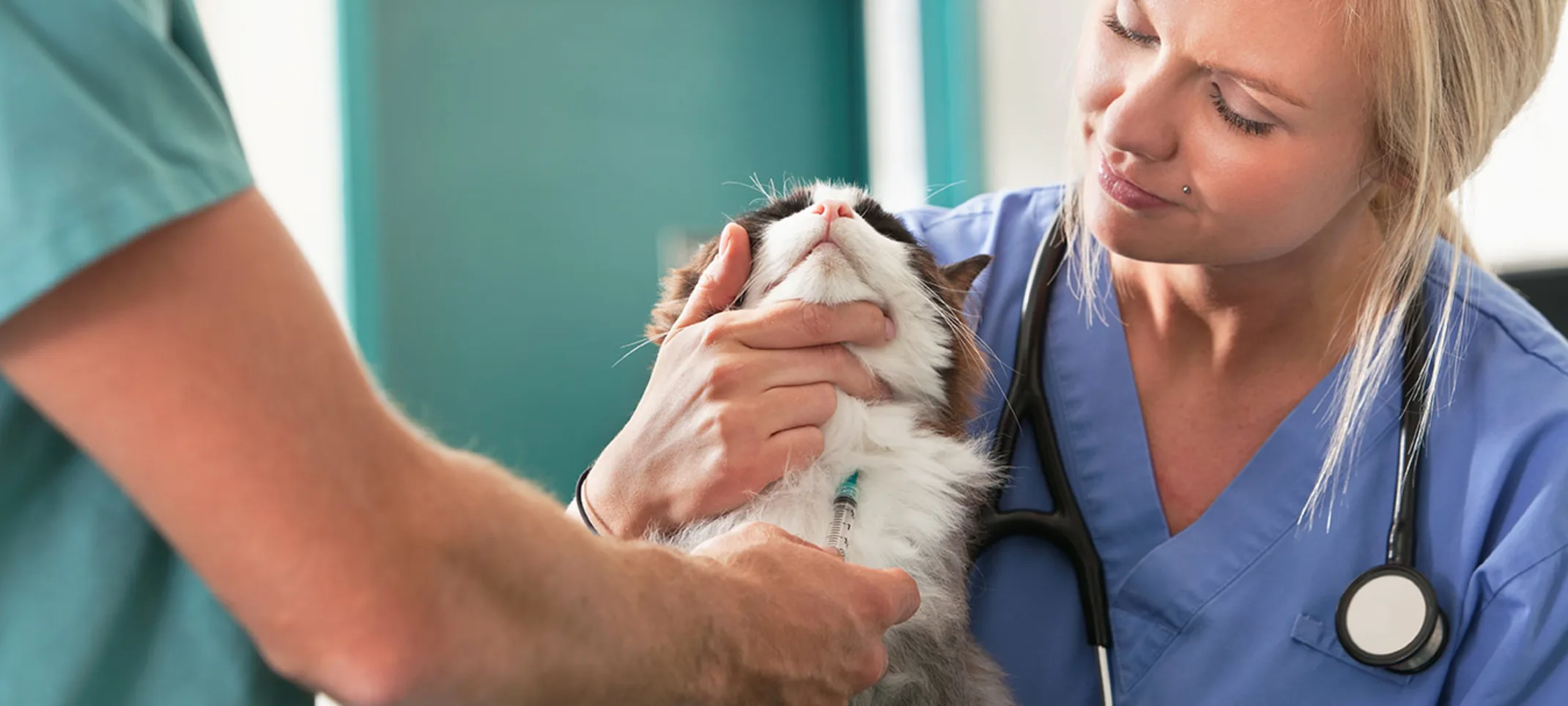Family Pet Hospital
In House Laboratory Testing
Family Pet Hospital’s complete in-house laboratory gives us the ability to test your pets for a multitude of problems and swiftly receive results.

In-House Veterinary Laboratory Testing in Edmond, OK
Testing for a Complete Picture of Your Pet’s Health
Laboratory tests are an important part of a comprehensive physical exam of your pet. We use laboratory testing to get a sense of your pet’s system’s overall health. Our regular wellness exams usually include some form of laboratory testing. These tests help us establish a baseline of your pet’s health, so that we can catch deviations from your pet’s normal statistics before they devolve into health issues. Our goal is early detection to preserve your pet’s health, longevity, and quality of life.
Family Pet Hospital’s complete in-house laboratory gives us the ability to test your pets for a multitude of problems and swiftly receive results. Being able to test in-house means that our Edmond veterinarian is able to more precisely and quickly diagnose your pet and set up a treatment plan.
Overview
Unfortunately, pets can’t tell us where it hurts, and oftentimes, a healthy appearing animal may be masking symptoms of disease or illness. We recommend veterinary diagnostic testing to identify any problems and to begin treatment as early as possible. These tests are especially helpful when symptoms are unspecific or hard to define.
When would laboratory work be needed?
Most laboratory work is done through routine wellness exams as directed by our doctors. For emergencies or unscheduled visits, our diagnostic lab will run various tests to determine the best treatment for your pet.
We recommend regular tests to determine your pet’s health. If any concerns or conditions are found, we will help you decide on proper treatment. If your pet is showing irregular behavior, please schedule an appointment as soon as possible. Our doctors will determine which laboratory services are appropriate during your exam.
How do veterinarians use laboratory work?
To ensure a proper diagnosis, we first examine your pet by looking at their eyes, ears, and skin; then we check their cardiovascular, neurological, gastrointestinal, and skeletal systems for any abnormalities. We will then perform blood and/or urine tests if necessary to check their kidneys, liver, pancreas, and endocrine system. Based on your pet’s condition, we may recommend further diagnostic testing.
If you’re concerned that something may be wrong with your pet, please call us to schedule a medical assessment.
Types of Laboratory Testing
Depending on your pet’s needs, we’ll order a variety of tests to be performed. Each of these tests will tell us important information about your pet’s health. We’ll use that information to diagnose whatever might be bothering your pet, or help us understand what we should be on the lookout for down the line.
At Family Pet Hospital, we provide the following laboratory tests:
Biopsies
Blood chemistry analysis
Coagulation profiles
Complete blood count (CBC)
Electrolytes
Fecal analysis
Heartworm testing
Thyroid function
Urinalysis
We’ll use the lab work from your pet’s general wellness exams as a baseline. If you pet ever falls ill, we’ll conduct new laboratory testing to compare with your pet’s existing lab results. By comparing the two, we’ll be able to pinpoint what’s changed and what might be causing your pet’s issues.
If your pet ever needs surgery, we’ll also conduct fresh laboratory tests to make sure it’s safe to put your pet under general anesthesia.
Disease Detection
One of the benefits of regular laboratory testing is that our Edmond veterinary team will be able to diagnose the onset of diseases early without any invasive or expensive procedures. We’ll also use laboratory testing to track the progression of diseases and other developments in your pet’s health. When you test early and regularly, we’ll be able to be able to catch conditions before they impact your pet’s health and quality of life.
What kind of diseases can laboratory testing detect?
Diabetes
Feline leukemia
Intestinal parasites
Lyme disease
Urinary tract infections
The above diseases are just a handful of the of diseased laboratory testing can detect.

